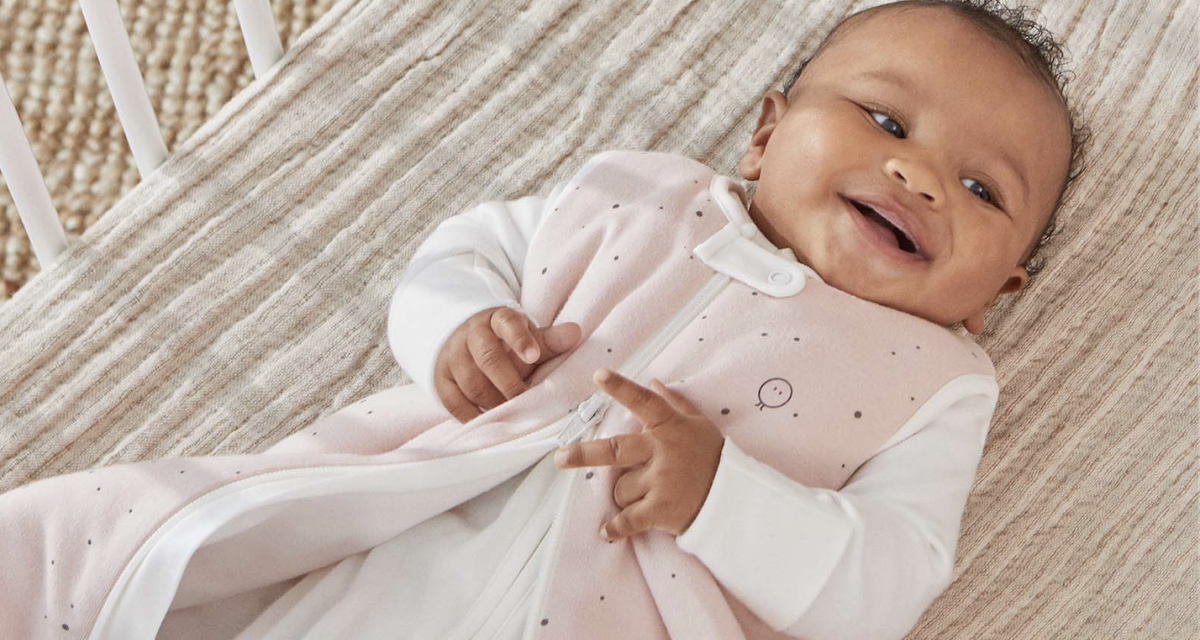Baby brand Mori is eyeing luxury department stores as it expands in the U.S.

U.K.-based Mori is making its way across the pond to grow its presence in the U.S.
Mori — which sells premium baby clothes, accessories and nursery essentials — is entering five Neiman Marcus locations this year. Just recently, the brand launched its products online on Nordstrom and Bloomingdale’s websites. The company is also in talks with more department stores to make its products available for purchase in their physical stores.
Before its wholesale expansion, Mori had only been available in the U.S. through its DTC website and a handful of boutiques. Still, the U.S. market currently accounts for 40% of its business. Akin Onal, Founder and CEO of Mori, sees the opportunity to expand its existing popularity in the U.S. while still maintaining its premium status.
“We don’t want to go everywhere. The brand positioning, which is premium, is important for us,” Onal said. “But we want to be in places where our customers already shop at or look up to in terms of deciding what to buy.”
Onal, whose family heritage is rooted in the textiles business in Turkey, founded Mori in 2015 with the idea of creating baby apparel using soft fabric ideal for an infant’s sensitive skin. The company has amassed a following of over 300,000 followers on Instagram, and celebrities like reality TV star Kim Kardashian have posted about their products. The company offers 4,000 to 5,000 SKUs at any given time, which includes onesies, swimwear and blankets.
Although the company mainly operates online, the company has grown its business by up to 35% year-over-year. Over the last 12 months, Mori has generated about $7 million in revenue in the U.S. through its online channel. About 60% of its U.S. sales are from California and New York. The company has raised about $10 million in funding to date.
Mori is starting its growth journey in the U.S. by way of luxury department stores. Onal said that Mori hopes to benefit from the elevated image that its department store partners have in the U.S. Additionally, the company wants to reduce dependence on paid ads from Meta and Google to acquire new customers.
Ad position: web_incontent_pos1
“When we partner with these larger retailers it will bring a bit more validation and relevance to the brand for the shoppers of those department stores,” Onal said. “It is a much larger geography for us compared to the U.K. Obviously, that means it’s even more competitive.”
The company aims to launch in the physical stores of its U.S. partners. Later this year, it is also launching its products on Saks’ website. Mori also has an existing partnership with the Babylist where its products are available for sale online and in the baby registry company’s sole physical store.
Kimberley Ring Allen, founder of Ring Communications and adjunct professor at Suffolk University, said brands that may not have widespread recognition can benefit from associating themselves with specific retailers. She said luxury department stores like Nordstrom and Neiman Marcus have already developed loyalty programs for people who love premium goods.
“For clothing brands like them, they’re new. They don’t have that built-in loyalty yet but these stores do,” Allen said. “Putting yourself in a place where people are already shopping through these retail channels, looking for this type of stuff, it only makes sense.”
For international brands hoping to make a name for themselves in the U.S., teaming up with a well-known retailer is less risky than opening a store, she said. Running a store would require a different set of skills and significantly more build-out cost.
Ad position: web_incontent_pos2
However, the U.S. is a notoriously competitive market. Even some of the biggest retailers overseas, such as British retail giant Tesco, have failed to establish their business in the U.S. Additionally, the shopping trends and interests of people from each state in the U.S. can be vastly different from one another.
Mori’s Onal said that the company is mainly targeting the California and New York areas, where most of its customers are, in the early stages of its expansion. Onal said running a standalone store in the U.S. would be challenging, but once Mori gains more footing, it plans to start considering opening stores in the country. The company does have a flagship store in London.
“I definitely want to become an established brand,” Onal said. “In the U.K., especially in the London area, if you’re speaking to a new parent or an expecting parent, they will know Mori. I want it to be the same in the U.S.”

